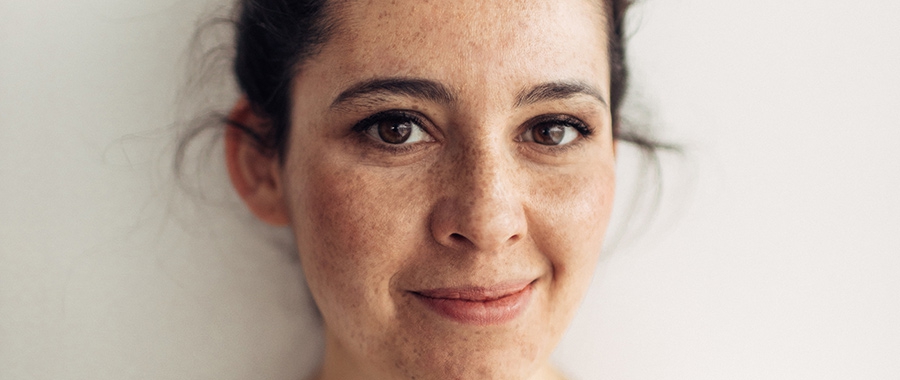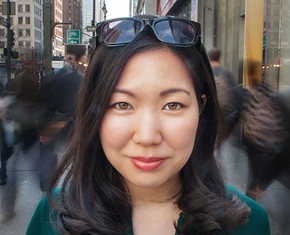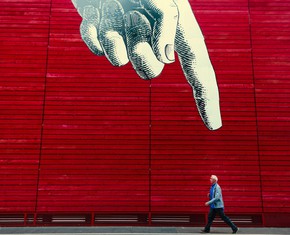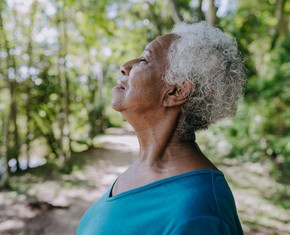The views expressed in our content reflect individual perspectives and do not represent the authoritative views of the Baha'i Faith.
When I was in grade school, I used to go to the store at lunch when I had money. Some of the other girls would often ask me to get them things and give me money to go for them. I didn’t mind, since I was going anyway. I didn’t mind that they didn’t play with me the rest of the time; I was doing it to be nice.
My mom told me that they were using me, and that the teachers felt that I was trying to buy their friendship. But the truth was that I had no expectations of friendship from them. I had my own group and it was all I really needed.
I’d like to think that I’ve always been a nice and trusting person. I often do things for others out of consideration. Many people mistake this attitude as naivete, but do not make that mistake: they are not the same thing.
O people of Bahá! Trustworthiness is in truth the best of vestures for your temples and the most glorious crown for your heads. Take ye fast hold of it at the behest of Him Who is the Ordainer, the All-Informed. – Baha’u’llah, Tablets of Baha’u’llah Revealed After the Kitab-i-Aqdas, p. 38
I choose to trust. Moreover, I choose to trust knowing full well when someone’s intentions are not honorable, and when they have shown little to deserve it. I still choose to trust even though some people have really hurt me.
I wouldn’t say that I get taken advantage of more than anyone else. Overall, I’d say it’s probably less. There are very few people who ever made it onto my “I hate you list.” (I’m ashamed now to say that I even had one at all; from now on, let’s rename it as my “I don’t trust you” list.) And just because someone is on that list, does not mean that I cannot or will not have compassion for them. Let me share a story with you:
When I was a teenager, there was a girl who joined our youth group. She was socially awkward, and so she had a hard time making friends. Because of the nature of the group, we were obliged to interact with her. I wouldn’t say that I liked or disliked her, but she helped me to learn something about myself.
You see, she was teased often by the others, but in spite of everything, she kept coming and optimistically hoping someone would be friendly to her. One day, a boy she had a crush on was particularly unkind to her and I found her crying alone in the bathroom. I could have ignored her. She wasn’t really my friend. I barely knew her and I certainly didn’t know if I could trust her yet.
But I didn’t ignore her. I put aside all my doubts and asked her what was wrong. I knew she needed someone to talk to and that others were less likely to give her a shoulder to cry on. So, we sat in the bathroom and I listened to her cry about how hurt she was.
You must manifest complete love and affection toward all mankind. Do not exalt yourselves above others, but consider all as your equals, recognizing them as the servants of one God. Know that God is compassionate toward all; therefore, love all from the depths of your hearts, prefer all religionists before yourselves, be filled with love for every race, and be kind toward the people of all nationalities. Never speak disparagingly of others, but praise without distinction. Pollute not your tongues by speaking evil of another. – Abdu’l-Baha, The Promulgation of Universal Peace, p. 453
I learned that I had the ability to set my personal feelings aside and demonstrate compassion for another human being when they were in need.
Over the years, I’ve had many people tell me that I should not be so quick to trust others; that I should make them earn it first. I thought about it long and hard, and to be honest, I don’t want to live in that kind of world, where people are held at a distance and forced to prove themselves before being accepted.
Ironically, I often say that I have trust issues. The truth is that I do and I don’t. I choose to extend my trust even when my gut says I shouldn’t, and I trust again, even when that trust is broken. I just don’t trust blindly. Blind trust is when you trust without knowing what a person is capable of. I know all too well what people are capable of, both good and bad.
My real trust issue is that I know what people are like, and so a part of me remains cautious and doubtful when I extend my trust. But I also know that if I don’t, I’ll be alone and isolated from others. I don’t want to live in a world where people distrust one another and no one has the benefit of the doubt. I want to live in a world where people know that today might be a bad day for me, but hope that it isn’t, and extend me their trust.
Trustworthiness is the greatest portal leading unto the tranquility and security of the people. In truth the stability of every affair hath depended and doth depend upon it. All the domains of power, of grandeur and of wealth are illumined by its light. – Baha’u’llah, Tablets of Baha’u’llah Revealed After the Kitab-i-Aqdas, p. 37
Years ago, I learned that a part of loving someone is allowing yourself to be loved in return. I think the same now about trust and trustworthiness. How can I trust if I myself am not trustworthy? Conversely, how can I live up to the Baha’i virtue of being trustworthy if I do not trust?
This rectitude of conduct, with its implications of justice, equity, truthfulness, honesty, fair-mindedness, reliability, and trustworthiness, must distinguish every phase of the life of the Baha’i community. “The companions of God,” Baha’u’llah Himself has declared, “are, in this day, the lump that must leaven the peoples of the world. They must show forth such trustworthiness, such truthfulness and perseverance, such deeds and character that all mankind may profit by their example. – Shoghi Effendi, The Advent of Divine Justice, pp. 16-43.
In recent years, someone I knew wanted something and felt that I was the only one who could get it for them. So, they manipulated me into doing it with promises of repayment. The repayment has never come. For a while, I was hurt and angry about it. But then I found out that they moved to another country because of the opportunity I had given them, and my perspective suddenly changed. You see, this move literally changed this person’s life, and the life of her child. Because of my trust, she was no longer a single mom on social assistance and her child now lives with both of her parents. How can that be wrong?
It made me realize that my position was selfish. Sure, she could have done the whole thing differently, but now, knowing how it turned out, I wouldn’t change a thing. I actually hope she’s happy. Because if she’s happy and feeling secure, she’s less likely to be out there trying to scam others and she’s able to focus on raising her child to be a happy, well-adjusted person. That makes my world better.
The Bahai Faith calls upon its believers to think of enemies as “friends”, and I never really got that until now.
Your duty is of another kind, for you are informed of the mysteries of God. Your eyes are illumined; your ears are quickened with hearing. You must, therefore, look toward each other and then toward mankind with the utmost love and kindness. You have no excuse to bring before God if you fail to live according to His command, for you are informed of that which constitutes the good pleasure of God. You have heard His commandments and precepts. You must, therefore, be kind to all men; you must even treat your enemies as your friends. You must consider your evil-wishers as your well-wishers. Those who are not agreeable toward you must be regarded as those who are congenial and pleasant so that, perchance, this darkness of disagreement and conflict may disappear from amongst men and the light of the divine may shine forth, so that the Orient may be illumined and the Occident filled with fragrance, nay, so that the East and West may embrace each other in love and deal with one another in sympathy and affection. –Abdu’l-Baha, The Promulgation of Universal Peace, p. 470
















Comments
Sign in or create an account
Continue with Googleor